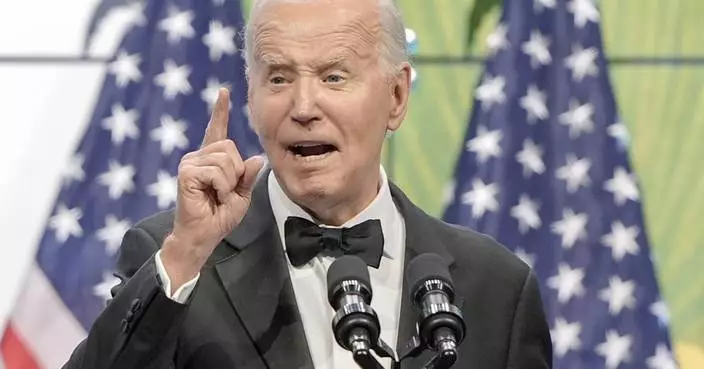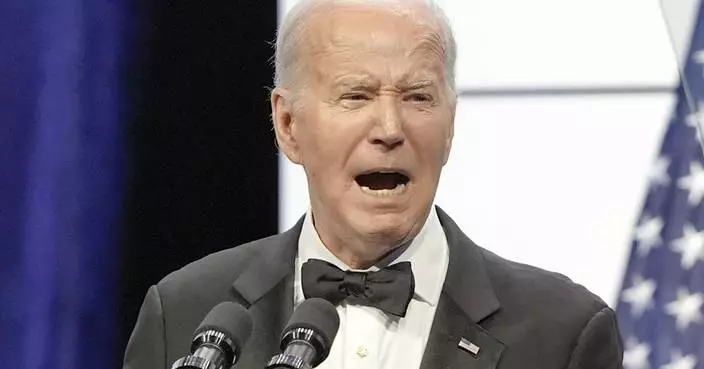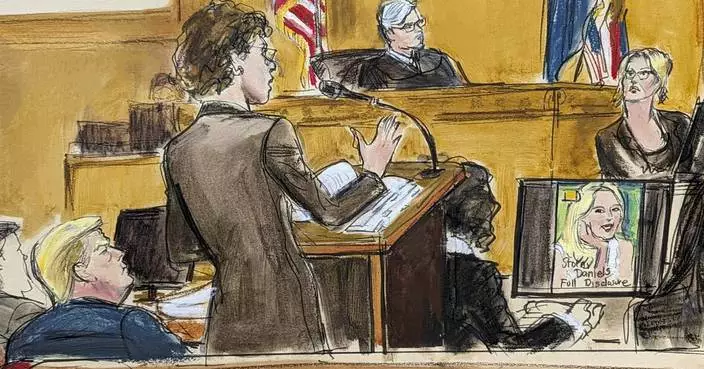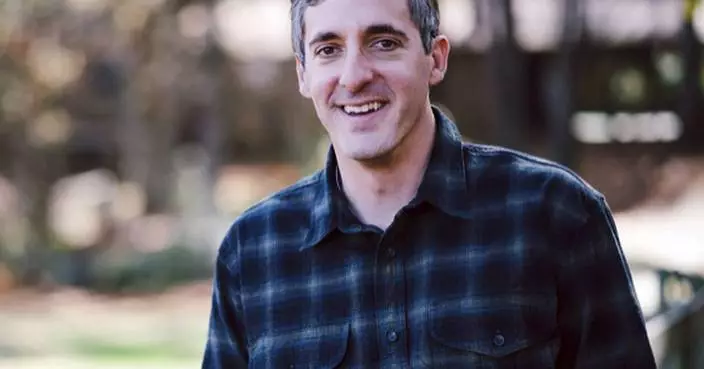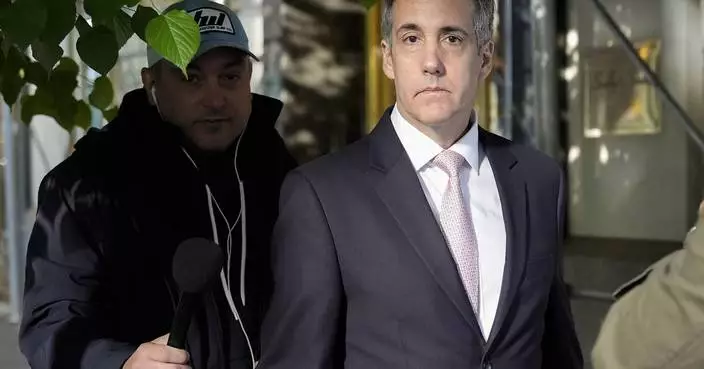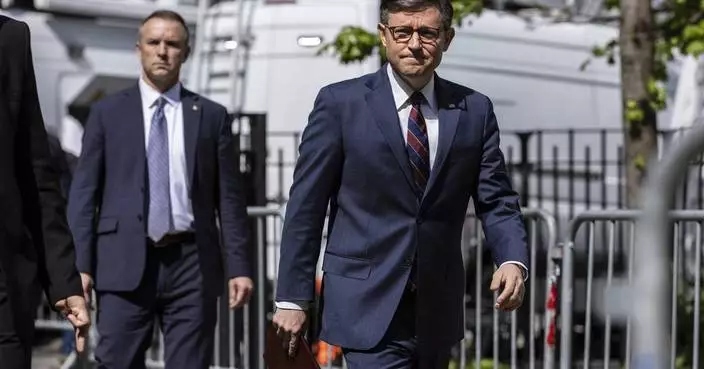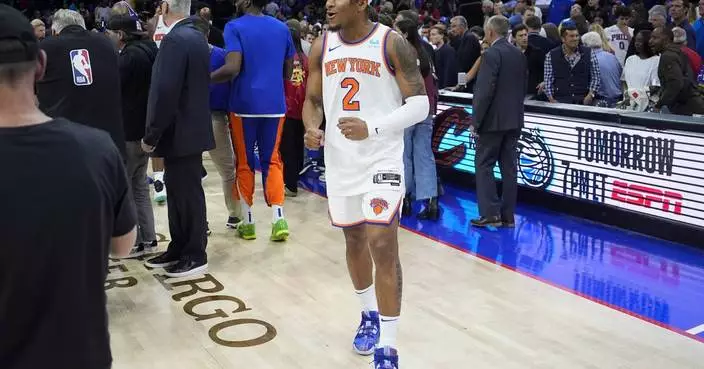President Donald Trump said Friday he's delaying a new policy allowing the body parts of African elephants shot for sport to be imported until he can review "all conservation facts."
The U.S. Fish and Wildlife Service said Thursday it would allow such importation, arguing that encouraging wealthy big-game hunters to kill the threatened species would help raise money for conservation programs.
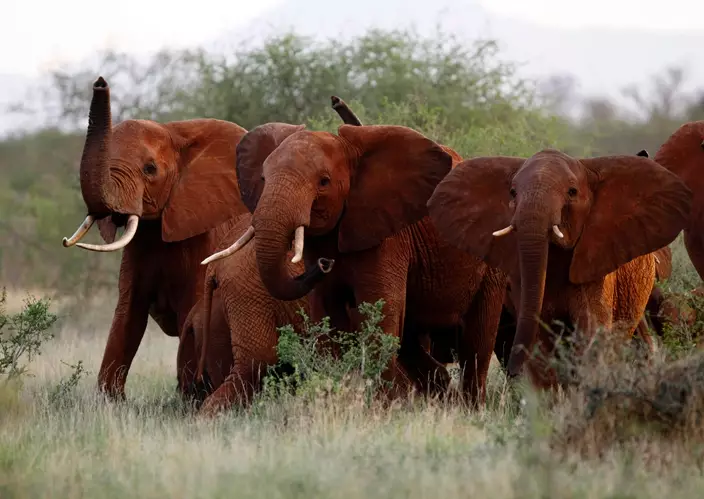
In this file photo taken Tuesday, March 9, 2010, elephants use their trunks to smell for possible danger in the Tsavo East national park, Kenya. The Trump administration is lifting a federal ban on the importation of body parts from African elephants shot for sport. (AP Photo/Karel Prinsloo, File)
Animal rights advocates and environmental groups criticized the decision. California Rep. Ed Royce, the Republican chairman of the House Foreign Affairs Committee, urged the administration to reverse the policy, calling it the "wrong move at the wrong time."
Trump tweeted Friday that the policy had been "under study for years." He said he would put the decision "on hold" and review it with Interior Secretary Ryan Zinke.
Zinke issued a statement later Friday saying: "President Trump and I have talked and both believe that conservation and healthy herds are critical. As a result, in a manner compliant with all applicable laws, rules and regulations, the issuing of permits is being put on hold as the decision is being reviewed."
Royce questioned the action because of concerns not only about African wildlife but U.S. national security, citing the political upheaval in Zimbabwe, where the longtime president was placed under house arrest this week by the military.
"The administration should withdraw this decision until Zimbabwe stabilizes," the committee chairman said in a statement. "Elephants and other big game in Africa are blood currency for terrorist organizations, and they are being killed at an alarming rate.
Stopping poaching isn't just about saving the world's most majestic animals for the future — it's about our national security."
The Fish and Wildlife Service said in a written notice issued Thursday that permitting elephants from Zimbabwe and Zambia to be brought back as trophies will raise money for conservation programs. The change marks a shift in efforts to stop the importation of elephant tusks and hides, overriding a 2014 ban imposed by the Obama administration. The new policy applies to the remains of African elephants killed between January 2016 and December 2018.
"Legal, well-regulated sport hunting as part of a sound management program can benefit certain species by providing incentives to local communities to conserve those species and by putting much-needed revenue back into conservation," the agency said in a statement.
Royce said that when carefully regulated, conservation hunts could help the wildlife population, but "that said, this is the wrong move at the wrong time."
He described the perilous situation in Zimbabwe, where the U.S. Embassy has advised Americans to limit their travel outdoors.
"In this moment of turmoil, I have zero confidence that the regime — which for years has promoted corruption at the highest levels — is properly managing and regulating conservation programs," Royce said. "Furthermore, I am not convinced that elephant populations in the area warrant overconcentration measures."
The world's largest land mammal, the African elephant has been classified as threatened under the U.S. Endangered Species Act since 1979.
Illicit demand for elephant ivory has led to devastating losses from illegal poaching as the natural habitat available for the animals to roam has also dwindled by more than half. As a result, the number of African elephants has shrunk from about 5 million a century ago to about 400,000 remaining. And that number continues to decline each year.
Two other lawmakers, Reps. Vern Buchanan, R-Fla., and Earl Blumenauer, D-Ore., co-chairs of the Congressional Animal Protection Caucus, assailed the administration's decision.
"We should not encourage the hunting and slaughter of these magnificent creatures," Buchanan said. "We don't get a second chance once a species becomes extinct."
One group that advocates for endangered species called for more action after Trump's Friday night tweet. "It's great that public outrage has forced Trump to reconsider this despicable decision, but it takes more than a tweet to stop trophy hunters from slaughtering elephants and lions," said Tanya Sanerib, senior attorney with the Center for Biological Diversity. "We need immediate federal action to reverse these policies and protect these amazing animals."
WASHINGTON (AP) — After months of questions about whether general election debates would happen, President Joe Biden and Republican nominee Donald Trump have agreed to participate in two of them: one in June and one in September.
But there are still some nitty-gritty details to be worked out, including the formats of the events and who will moderate. Here's what we know so far:
Trump and Biden have agreed to two debates. The first will held at 9 pm. Eastern time on June 27 at CNN’s studios in Atlanta, in a critical battleground state. “To ensure candidates may maximize the time allotted in the debate, no audience will be present," CNN said in a statement. To qualify, candidates must receive at least 15% in four national polls of registered or likely voters that meet CNN’s standards.
Anchors Jake Tapper and Dana Bash would moderate the debate, CNN said.
The second debate will take place on Sept. 10 and will be hosted by ABC. While ABC has yet to detail where that debate will take place, the format or its moderators, it set the same 15% polling threshold as CNN.
“It is my great honor to accept the CNN Debate against Crooked Joe Biden," Trump posted on his Truth Social site. “Likewise, I accept the ABC News Debate against Crooked Joe on September 10th."
Biden said he'd done the same.
“Trump says he’ll arrange his own transportation,” Biden wrote on X. “I’ll bring my plane, too. I plan on keeping it for another four years.”
The first debate will play out in a jam-packed and unsettled political calendar, before either candidate becomes his party's official nominee at the summer conventions — scheduled to begin July 15 for Republicans and Aug. 19 for Democrats.
The June 27 match-up will come after the expected conclusion of Trump’s criminal hush money trial in New York, foreign trips by Biden in mid-June to France and Italy, and the end of the Supreme Court’s term. That term will include a ruling on whether Trump is immune from federal prosecution for his role in the Jan. 6 Capitol insurrection. The debate will also come before the expected start of two criminal trials on opposite coasts for the president’s son, Hunter.
The second debate would take place before most states begin early voting — though some overseas and military ballots may already be in the mail.
Trump's campaign is also pushing for more debates. In a memorandum Wednesday, senior campaign advisers Chris LaCivita and Susie Wiles sent a memo to Biden campaign chair Jen O’Malley Dillon saying, “we believe there should be more than just two opportunities for the American people to hear more from the candidates themselves.” They proposed holding one debate per month, with events in June, July, August and September, in addition to a vice presidential debate.
“Additional dates will allow voters to have maximum exposure to the records and future visions of each candidate,” they wrote. Biden's campaign didn't respond to a request for comment on the Trump team's push for additional match-ups.
Trump has also expressed other preferences. In an interview Wednesday morning with conservative radio host Hugh Hewitt, he agreed the debates “should go two hours” and also said he'd prefer if the men stand instead of sit.
“A stand-up podium is important," he said, adding he thinks Biden wants to sit. He also said he would prefer the events take place in larger venues, before a live audience.
"It’s just more exciting,” he said.
The Biden campaign outlined its own preferences in a letter Wednesday. It wants candidates' microphones muted when they aren't recognized to speak to promote “orderly proceeding,” and it is opposed to live studio audiences.
“The debates should be conducted for the benefit of the American voters, watching on television and at home — not as entertainment for an in-person audience with raucous or disruptive partisans and donors, who consume valuable debate time with noisy spectacles of approval or jeering," O’Malley Dillon wrote.
Biden's camp also argued third-party candidates should be excluded. “The debates should be one-on-one, allowing voters to compare the only two candidates with any statistical chance of prevailing in the Electoral College," O’Malley Dillon wrote, “not squandering debate time on candidates with no prospect of becoming President.”
There should also, she wrote, “be firm time limits for answers, and alternate turns to speak — so that the time is evenly divided and we have an exchange of views, not a spectacle of mutual interruption.”
The deal between the campaigns now sidelines the Commission on Presidential Debates, the nonpartisan group that has organized them for more than three decades. Both campaigns had expressed longstanding concerns about the commission’s operations, with Trump blaming it for microphone issues during a debate in 2016 and Biden’s campaign calling its plans “out of step with changes in the structure of our elections and the interests of voters.”
Both sides had taken particular issue with the dates the commission had announced, arguing the debates should happen earlier, before voting begins.
In a statement, the debates commission noted it had been “established in 1987 specifically to ensure that such debates reliably take place and reach the widest television, radio and streaming audience. Our 2024 sites, all locations of higher learning, are prepared to host debates on dates chosen to accommodate early voters. We will continue to be ready to execute this plan.”
The debates will be the first televised general election match-ups to be hosted by an individual news organization. The 1960 debates, which helped show the power of the medium to influence public opinion, were hosted jointly by the leading networks of the day, ABC, CBS and NBC. The presidential debates of 1976, 1980 and 1984 were organized by the League of Women Voters, and every debate since has been hosted by the Commission on Presidential Debates.
Traditionally the debates are simulcast across all networks and other streaming outlets to reach the widest possible viewing audience. It was not yet clear whether the 2024 matchups would be shared similarly.
The Biden and Trump teams accepted the invitations from ABC and CNN after the Biden campaign proposed that the debates this year be hosted by any broadcast organization that hosted a Republican primary debate in 2016 and a Democratic primary debate in 2020. In that event, "neither campaign can assert that the sponsoring organization is obviously unacceptable: if both candidates have previously debated on their airwaves, then neither could object to such venue.”
Those criteria would eliminate Fox News, which did not host a Democratic primary debate in 2020, and NBC News, which did not host a GOP one in 2016 — though its corporate affiliates CNBC and Telemundo were co-hosts of one debate each that year.
Trump has said he accepted a debate invitation in October from Fox News, though Biden's team dismissed it as “playing games.”
Both Biden and Trump are expected to engage in intensive preparation sessions before the debates. Former Biden chief of staff Ron Klain, who now works at Airbnb, told the AP he will use vacation time to help Biden get ready to face off with Trump. Former New Jersey Gov. Chris Christie, who helped Trump prepare for previous debates seems unlikely to reprise the role, having suffered a falling out with the presumptive GOP nominee.
It is unclear whether any third party candidates will qualify for the debates, but both CNN and ABC's criteria appear to pose an challenge for Robert F. Kennedy Jr. He railed against the plan on X on Wednesday, accusing Trump and Biden of "colluding to lock America into a head-to-head match-up that 70% say they do not want.
“They are trying to exclude me from their debate because they are afraid I would win," he wrote. “Keeping viable candidates off the debate stage undermines democracy.”
In addition to their polling requirements, both CNN and ABC said that in order to qualify, a candidate’s name must appear on a sufficient number of state ballots to qualify that person to reach 270 electoral college votes.
So far, Kennedy has qualified for the general election ballot in three states -- California, Michigan and Utah, according to AP Elections Research. He is listed as an independent or minor party candidate in eight more states, but hasn’t yet qualified for the ballot in them. They are Delaware, Hawaii, Idaho, Iowa, Nebraska, Nevada, New Hampshire and North Carolina. Those 11 states have a combined 123 electoral college votes, meaning he would need to get on the ballot in additional states in order to qualify.

In this combination photo, President Joe Biden speaks May 2, 2024, in Wilmington, N.C., left, and Republican presidential candidate former President Donald Trump speaks at a campaign rally, May 1, 2024, in Waukesha, Wis. President Joe Biden says he won’t participate in the campaign debates sponsored by a nonpartisan commission, instead challenging Republican Donald Trump to a pair of debates. Biden said Wednesday that Trump lost two debates to him in 2020 and since then, he hasn’t shown up for a debate. Biden proposes debating Trump twice. (AP Photo)





